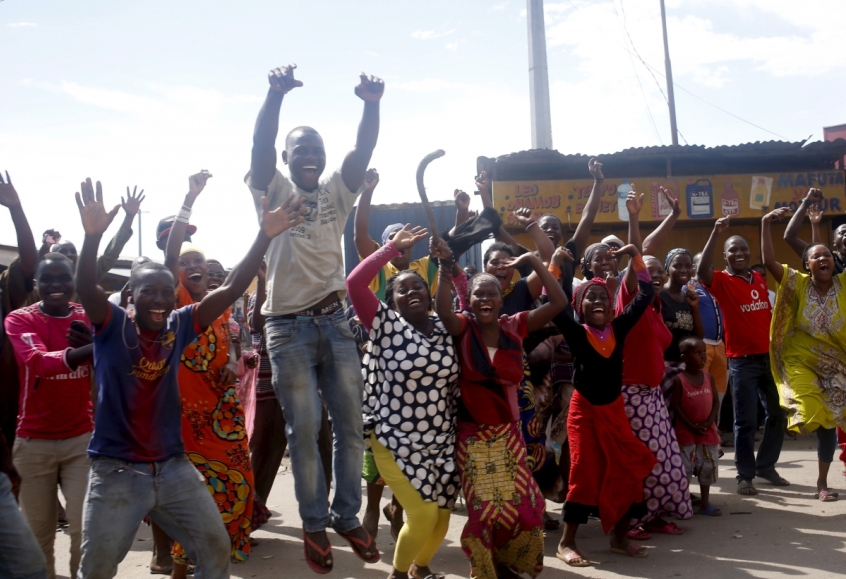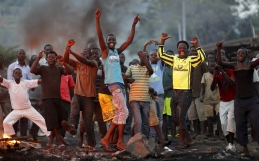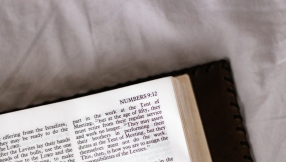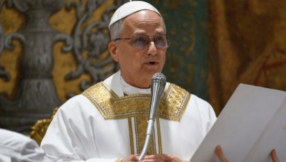
A Burundi army general said on Wednesday he had sacked Pierre Nkurunziza as president for seeking an unconstitutional third term in office, and was working with civil society groups to form a transitional government.
The presidential office quickly rubbished the declaration by Major General Godefroid Niyombare, who was fired by Nkurunziza as intelligence chief in February. "We consider it as a joke not as a military coup," presidential aide Willy Niyamitwe told Reuters.
But crowds of people streamed onto the streets of Burundi's capital, cheering and singing, after the announcement and soldiers surrounded the state broadcaster building.
Niyombare made his declaration to reporters at a military barracks in Bujumbura, while the president was out of the country at an African summit on the crisis.
Niyombare, also a former ambassador to Kenya, was surrounded by several other senior officers in the army and police, including a former defence minister.
"Regarding President Nkurunziza's arrogance and defiance of the international community which advised him to respect the constitution and Arusha peace agreement, the committee for the establishment of the national concord decide: President Nkurunziza is dismissed, his government is dismissed too," he said.
More than 20 people have been killed since street protests erupted in the impoverished central African state more than two weeks ago, according to an unofficial count by activists.
The demonstrators say Nkurunziza's bid for another five years in office violates a two-term limit in the constitution and the Arusha peace deal, which ended an ethnically fuelled civil war in 2005 that killed 300,000 people.
East African leaders and a top official from continental heavyweight South Africa were meeting in Tanzania's commercial capital Dar es Salaam to discuss the crisis that has already spilled over into a region with a history of ethnic conflict.
South Africa's Foreign Ministry in Pretoria said it was monitoring the situation in Burundi closely but said it was too early to determine whether the move amounted to a coup.
Western donors, including the United States and the European Union, have criticised Nkurunziza's decision to stand again.
The European Union and Belgium had said they were suspending some aid, particularly support for the elections due to the violence. Burundi's former colonial ruler Belgium had no immediate comment on the statement from the general.
More than 50,000 people have fled to neighbouring states. The UN refugee agency UNHCR said the crisis was heading towards a "worst case scenario" that could see 300,000 people fleeing, some to other parts of Burundi and others abroad.














